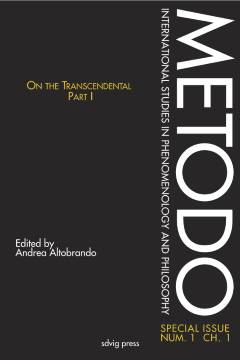Transzendentalphilosophie und Idealismus in der Phänomenologie
Überlegungen zur phänomenologischen "Gretchenfrage"
pp. 103-135
Abstract
The treatment of the question of transcendental idealism mirrors the different self-understandings of phenomenology in the 21st century. While in the context of French phenomenology it has been announced that “idealism is overcome” (Tengelyi) by a phenomenology of meaning-events, in the context of philosophy of mind, Husserl’s philosophy is appreciated as the most thought-out form of a “supervenience-idealism” (Meixner). It is clear that Husserl’s anti-representational theory of intentionality is not to be confused with any other “garden varieties” of idealism, but does that mean that we should better avoid the term altogether (Zahavi) and only talk about “the transcendental”? The paper wants to get clear about this question by sharply contrasting Kant’s transcendental idealism with Husserl’s transcendental idealism. The decisive difference is that for Kant appearance has its ground in something which is absolutely independent of experience, which makes him a “fundamental realist” (Allais) apart from his empirical realism; Husserl, by contrast, who argues that transcendentally reduced consciousness has “no outside” anymore, insists that the “thing in itself” is a “counter-sensical” thought.My thesis is thus that it is a misunderstanding to believe that in phenomenology there is a similar potential for drawing a limit against metaphysics as there is in Kant’s conception of the transcendental. Is such a limitation nevertheless necessary? And is it maybe implied in genetic phenomenology which claims that subjectivity develops in its interaction with the world and other subjects? While I do not agree that phenomenology’s idealistic constellation is tied to a “sovereign subject” and that relocating the constitutional force on other side of the correlation could solve the “problem,” I believe that we have to take seriously the transcendental stakes in phenomenology, which, in the form of a “strong correlationism” (Meillassoux), is still the best line of defense against a naturalization of consciousness, the world and intersubjectivity.
Publication details
Published in:
Altobrando Andrea (2015) On the transcendental. Metodo Special Issue 1.1.
Pages: 103-135
Full citation:
Loidolt Sophie (2015) „Transzendentalphilosophie und Idealismus in der Phänomenologie: Überlegungen zur phänomenologischen "Gretchenfrage"“. Metodo 1.1, 103–135.


